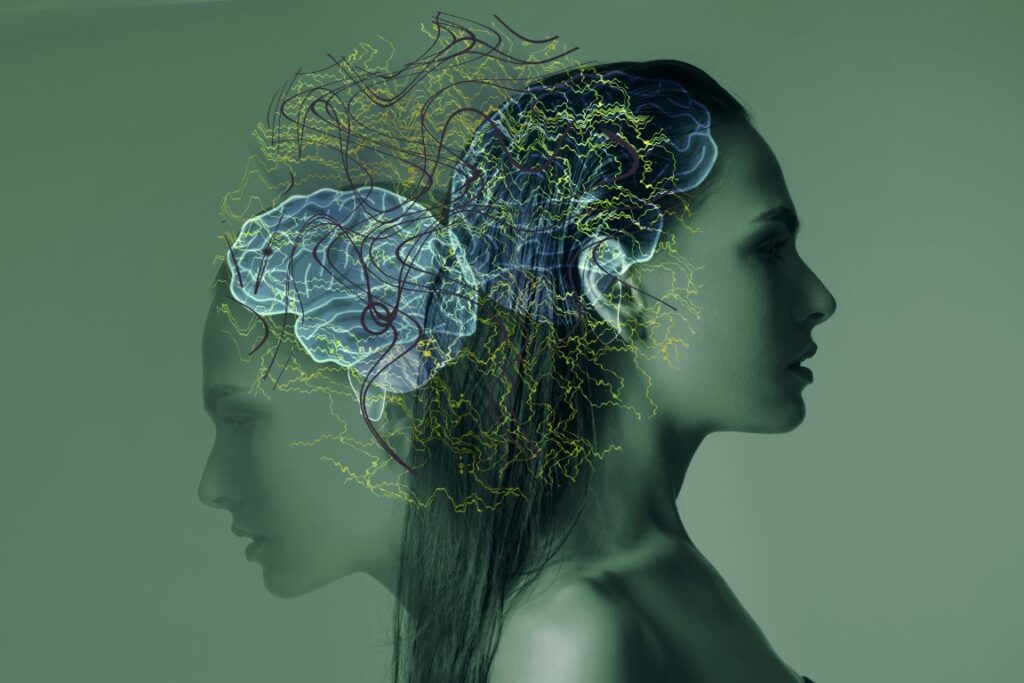You might think that mindfulness is just a trendy buzzword, but its impact on mental health is backed by science.
By consciously focusing on the present moment, you can significantly reduce stress and anxiety levels. However, the benefits of mindfulness extend far beyond stress relief.
Practicing mindfulness can help you navigate challenging emotions, understand yourself on a deeper level, and even enhance your cognitive abilities.
But that's just the beginning of the numerous ways mindfulness can transform your mental well-being.
Reducing Stress and Anxiety
To effectively manage stress and anxiety, practicing mindfulness can significantly improve your mental well-being and overall quality of life. Mindfulness techniques are powerful tools for stress reduction and anxiety management. By focusing on the present moment without judgment, you can cultivate a greater sense of calm and clarity in your daily life.
One effective mindfulness practice for stress reduction is deep breathing. When you feel overwhelmed, take a few moments to focus on your breath. Inhale deeply through your nose, hold for a few seconds, and then exhale slowly through your mouth. This simple exercise can help calm your mind and relax your body, reducing stress levels.
Another helpful mindfulness technique for managing anxiety is body scan meditation. This practice involves paying attention to each part of your body, starting from your toes and moving up to your head. By bringing awareness to physical sensations, you can release tension and promote relaxation, easing feelings of anxiety.
Incorporating these mindfulness practices into your daily routine can lead to significant improvements in managing stress and anxiety, enhancing your overall mental well-being.
Improving Emotional Regulation
Improving emotional regulation can be achieved through mindfulness practices that help you better understand and manage your feelings. Mindful breathing is a powerful tool that can assist in regulating emotions by bringing your focus to the present moment and calming the mind. This practice allows you to observe your emotions without judgment, creating a space between the emotion and your response, leading to better regulation.
In addition to mindful breathing, incorporating techniques that focus on emotion regulation can further enhance your ability to manage your feelings effectively. These techniques include identifying and labeling emotions, understanding the triggers behind them, and developing healthy coping mechanisms to deal with intense emotions. By practicing these methods regularly, you can cultivate a greater sense of emotional awareness and control.
- Practice mindful breathing: Engage in deep, intentional breathing exercises to ground yourself in the present moment.
- Identify and label emotions: Recognize and name your emotions to gain clarity and understanding.
- Develop healthy coping mechanisms: Find constructive ways to manage and express your feelings positively.
Enhancing Self-Awareness
When you practice self-awareness, you open the door to self-reflection, enabling you to understand your thoughts, emotions, and behaviors better.
By enhancing self-awareness, you can increase your emotional intelligence, leading to improved relationships and better decision-making skills.
Embracing mindfulness can help you tune into your inner self and cultivate a deeper understanding of your own experiences and reactions.
Self-Reflection Benefits
Enhance your self-awareness through the valuable practice of self-reflection, a powerful tool for personal growth and mental well-being. Engaging in self-reflection allows you to delve into your thoughts and emotions, gaining a deeper understanding of yourself.
Here are some benefits of self-reflection:
- Promotes Personal Growth: Self-reflection enables you to identify strengths, weaknesses, and areas for improvement, fostering personal development.
- Enhances Self-Awareness: By reflecting on your actions and reactions, you increase your understanding of your values, beliefs, and behavior patterns.
- Fosters Mental Clarity: Self-reflection helps clear your mind, reduce stress, and enhance focus, leading to improved mental well-being.
Take time for introspection; it's a journey worth embarking on for your overall mental health and self-improvement.
Increased Emotional Intelligence
Embarking on a journey of self-reflection not only promotes personal growth but also plays a significant role in enhancing emotional intelligence, contributing to a deeper understanding of oneself and others.
By cultivating self-awareness, you become more attuned to your emotions, thoughts, and behaviors, allowing you to navigate interpersonal relationships with greater empathy and insight. This heightened self-awareness forms the cornerstone of emotional intelligence, enabling you to recognize and regulate your emotions effectively.
As you develop a better understanding of your own emotional responses, you also become more adept at interpreting the feelings of those around you, enhancing your social skills and fostering deeper connections.
Through mindfulness practices that prioritize self-awareness, you can strengthen your emotional intelligence and cultivate more meaningful relationships.
Boosting Cognitive Function
Ready to supercharge your brain?
Mindfulness can enhance your brain power, sharpening your focus and clarity in daily tasks.
Enhancing Brain Power
To boost cognitive function and enhance brain power, incorporating mindfulness practices into your daily routine can lead to noticeable improvements in mental clarity and focus. Mindfulness meditation has been shown to positively impact brain function, helping you think more clearly and stay focused.
Here are three ways mindfulness enhances brain power:
- Enhanced Memory: Mindfulness practices can improve your ability to retain and recall information.
- Increased Attention Span: Regular mindfulness training can help you concentrate for longer periods without getting distracted.
- Improved Problem-Solving Skills: By promoting a clear and focused mind, mindfulness can enhance your ability to solve problems efficiently.
Incorporating mindfulness into your daily life can be a powerful tool for boosting cognitive performance and enhancing brain power.
Improving Focus and Clarity
Enhancing your focus and clarity through mindfulness practices is key to boosting your cognitive function and overall mental performance. By incorporating concentration techniques and mindfulness exercises into your daily routine, you can experience significant improvements in mental clarity and focus.
Mindfulness enables you to anchor your attention to the present moment, helping you avoid distractions and enhance your concentration skills. This heightened focus allows you to tackle tasks more efficiently and with greater precision.
As you engage in mindfulness exercises, you train your brain to maintain attention on the task at hand, ultimately leading to improved cognitive function. Cultivating mindfulness not only sharpens your focus but also enhances your overall mental acuity, setting the stage for improved performance in various aspects of your life.
Enhancing Memory Retention
Boost your cognitive function by incorporating mindfulness practices that focus on enhancing memory retention. Mindfulness not only helps you stay present but also improves your ability to remember and recall information. By engaging in mindfulness techniques, you can enhance your cognitive abilities, making learning more efficient and effective.
Here are some ways mindfulness can boost memory retention and cognitive function:
- Practice Mindful Meditation: Spend a few minutes each day meditating to improve focus and memory.
- Engage in Memory Games: Challenge your brain with puzzles and memory games to enhance retention.
- Stay Present in Daily Activities: Pay full attention to tasks at hand to strengthen memory and overall cognitive enhancement.
Incorporating mindfulness into your daily routine can significantly improve your memory retention and learning efficiency.
Fostering Resilience
By practicing mindfulness, you can cultivate a strong foundation for resilience in the face of life's challenges. Mindfulness helps in building inner strength by allowing you to develop a deeper understanding of your thoughts and emotions. This self-awareness is key to navigating difficult situations with resilience and grace. Through mindfulness, you can cultivate grit, which enables you to persevere in the face of adversity.
When faced with obstacles, mindfulness teaches you to acknowledge your feelings without judgment, thus enhancing your ability to bounce back from setbacks. By staying present in the moment and accepting things as they are, you can foster resilience and adaptability. This ability to remain steady amidst life's storms is a powerful tool for personal growth and mental well-being.
Incorporating mindfulness practices into your daily routine can help you develop the resilience needed to face life's challenges with a sense of calm and clarity. Remember, resilience isn't about avoiding stress, but about learning to navigate it with strength and flexibility.
Strengthening Relationships
To cultivate deeper connections and foster emotional intimacy, practicing mindfulness can play a significant role in strengthening relationships. Mindfulness enhances your ability to be fully present in interactions, improving communication skills and deepening connections.
Here's how mindfulness can help in strengthening your relationships:
- Improved Communication Skills: Mindfulness allows you to listen attentively to your partner, understand their perspective, and respond thoughtfully rather than reactively.
- Enhanced Empathy Building: By being mindful, you become more attuned to the emotions and needs of your loved ones, fostering empathy and creating a deeper emotional bond.
- Promotion of Emotional Connection: Mindfulness helps you stay present in moments shared with your partner, creating a space for vulnerability and emotional intimacy to flourish.
Promoting Overall Well-Being
Strengthening relationships through mindfulness not only fosters emotional intimacy but also plays a crucial role in promoting overall well-being. When you engage in mindfulness techniques within your relationships, you cultivate a deeper understanding and connection with others. By being fully present in your interactions, you show genuine interest and empathy, which can lead to stronger bonds and increased happiness.
In addition to enhancing relationships, mindfulness practices contribute significantly to your overall well-being. The act of being mindful allows you to focus on the present moment, letting go of stress and worries about the past or future. This shift in mindset can reduce anxiety, improve mood, and increase feelings of contentment. Incorporating mindfulness into your daily routine can serve as a powerful tool for self-care and personal growth.
Frequently Asked Questions
Can Mindfulness Practices Help With Managing Chronic Pain?
Mindfulness practices can significantly aid in pain management by fostering a strong mind-body connection. By being present and cultivating awareness, you can better understand and address the root causes of chronic pain.
Is There a Specific Time of Day That Is Best for Practicing Mindfulness?
Start your day with a mindful morning routine to set a positive tone, or unwind with a bedtime practice for relaxation. Experiment and find what works best for you; mindfulness can be beneficial anytime.
How Long Does It Typically Take to See the Benefits of Mindfulness on Mental Health?
You'll start feeling the positive impact of mindfulness on mental health within a few weeks. Stay consistent with your practice, and the benefits will become more pronounced as you progress along your mindfulness timeline.
Are There Any Potential Negative Side Effects of Practicing Mindfulness Regularly?
When you commit to regular mindfulness practice, potential drawbacks may include initial discomfort or increased awareness of negative thoughts. Adverse effects of mindfulness meditation can be temporary and often signal the process of inner growth.
Can Mindfulness Be Effective for Individuals With Severe Mental Health Conditions Such as Schizophrenia or Bipolar Disorder?
When dealing with severe mental health conditions like schizophrenia or bipolar disorder, mindfulness can be a helpful tool. Mindfulness techniques, when adapted appropriately, may aid in managing symptoms and improving overall well-being.
Conclusion
In conclusion, practicing mindfulness is essential for enhancing your mental health in various ways. By reducing stress and anxiety, improving emotional regulation, enhancing self-awareness, boosting cognitive function, fostering resilience, strengthening relationships, and promoting overall well-being, mindfulness plays a crucial role in maintaining a healthy mind.
So, make sure to incorporate mindfulness practices into your daily routine to experience the numerous benefits it has to offer for your mental well-being.


